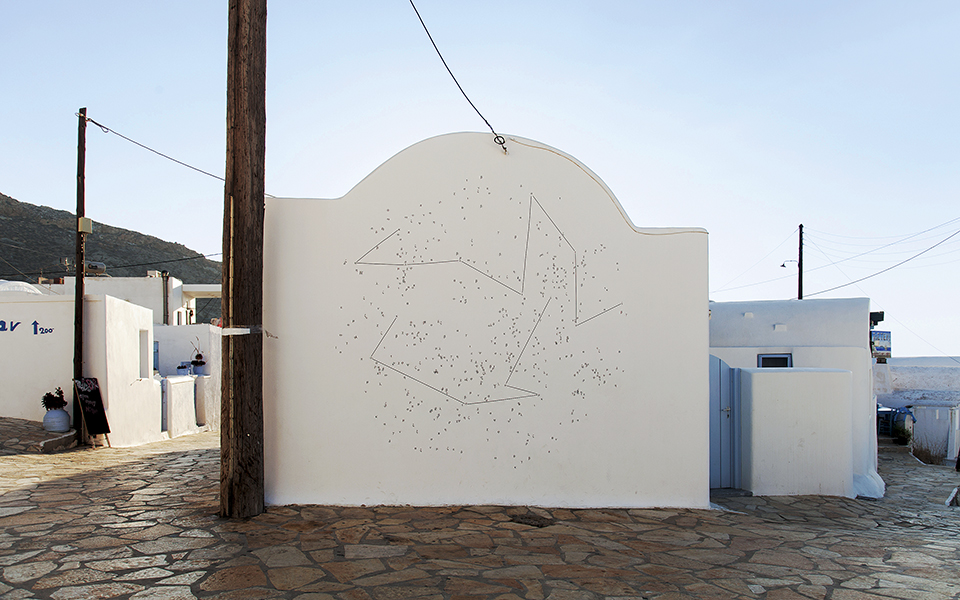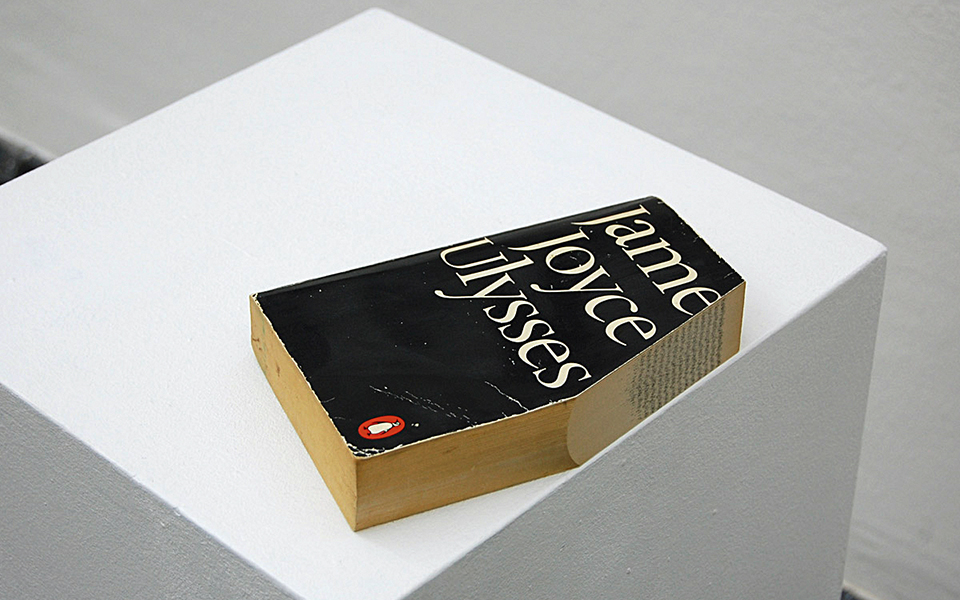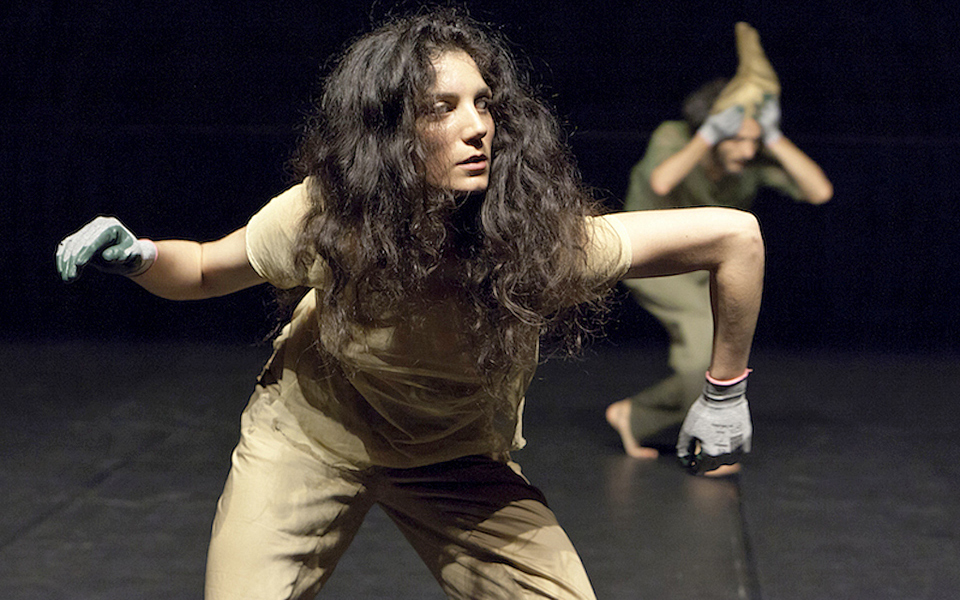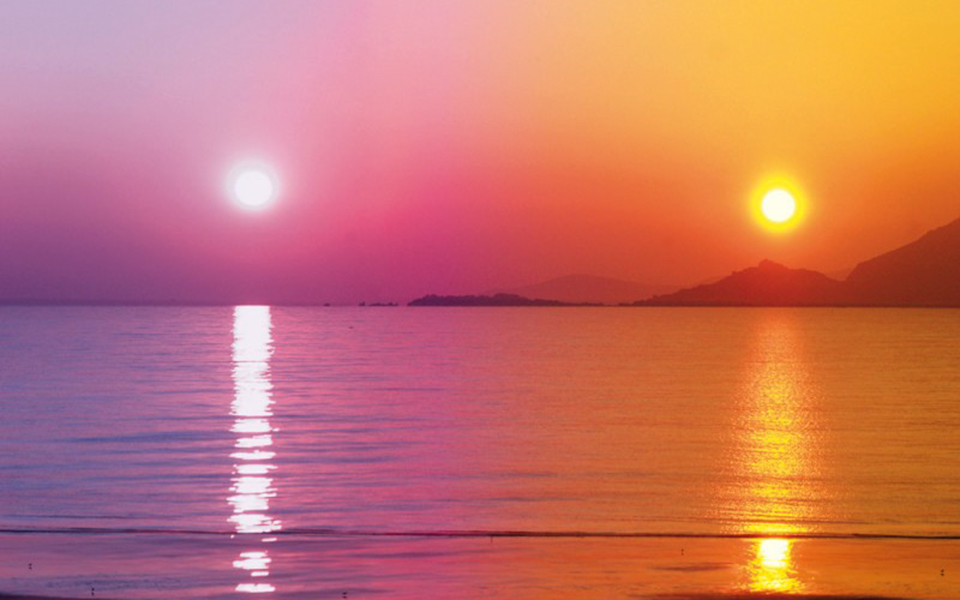The French Painter Who Found his Island Muse...
Igor Borisov turned Kimolos into his...

© www.phenomenon.fr
A little over a decade ago, a Greek and an Italian, two successful scientists in their fields who shared a passion for contemporary art, settled permanently in Paris. Eventually, the pair came up with the idea of using a Greek island as a visual terra incognita that could be rediscovered by artists. The project, titled Phenomenon, which includes a residency with performances, lectures, video screenings and other events, as well as an exhibition on the island and a publication, launched in 2015, during what was for Greece a critical referendum period, on Anafi, an island at the edge of the Cyclades group, and its co-founders decided to hold it every two years thereafter.
Jordan Kerenidis is head researcher for quantum computers at the Centre National de la Recherche Scientifique. Piergiorgio Pepe is director of ethics and compliance at AbbVie, a global biopharmaceutical company, and a lecturer at Sciences Po and INSEAD. They spoke recently to the newspaper Kathimerini about Phenomenon, the latest edition of which gets under way on Anafi at the beginning of July.

An artwork by Dora García
© www.phenomenon.fr
“Before 2006, our experience with contemporary art was limited to seeing exhibitions at big museums or galleries in New York and London,” say the collectors. “However, when we relocated to Paris, we decided to get more deeply involved. After a year of research and observing the work of artists at Parisian galleries, we thought of taking it further and bought the first piece of our collection, ‘The World, Justified,’ by Detanico Lain. We traveled frequently to exhibitions and biennials, and today the collection has grown to include facilities and videos of artists’ performances from around the world.
“We’re continuously trying to reinvent the role of the art collector, not just as buyers but as an active and productive part of the art community. Our aim is to provide the conditions necessary for artists to be able to continue producing their craft, because in the end that is what matters. It’s necessary to cultivate a relationship of mutual appreciation and trust with the artist as well as making the effort to create creative contact and support.

A performance by Lenio Kaklea
© www.phenomenon.fr
“On a more personal level, after 10 years of involvement with contemporary art, we have yet to cease being amazed at how much a work can affect the way we look at the world and what we decide to pay attention to. From mundane everyday acts, such as looking for the moon during the day or attempting to analyze a story starting from a mere footnote, art can give us a means of escape from normalcy and a dominant narrative. Appreciating art can and must be a productive experience in freedom.”
Why did they choose Anafi though? “The Phenomenon program is our effort to create a different sort of experience which could also create a dialogue between select artists and residents of the island and all who participate in the program. The fact that it’s happening in Greece, and particularly on this Cycladic island, plays a key role in how this exchange of opinions takes place and how new, and unexpected ideas can be hatched.”

An artwork by Julien Nédélec
© www.phenomenon.fr
According to the project’s website, “Phenomenon 2 will look at how histories, collective and personal, are socially constructed and constantly renegotiated,” adding that the small island “is a prime example of cultural stratification, where the Apollo temple quietly serves as the foundation of an orthodox monastery, while the history of the exiles that were held in Anafi has silently cohabited with the island’s local history.” It also raises the questions “What are the forces at play that actualize the visible and the discursive and construct historical formations? How can history be reinvented and the master narrative denaturalized?”
*This article was first published by ekathimerini.com on 06/07/2017
The invited participants for Phenomenon 2 are artists Ignasi Aballi, Dora Garcia, Mario Garcia Torres, Chrysanthi Koumianaki, Julien Nedelec and Christodoulos Panayiotou, curator Gregory Castera, media theorist Paul Feigelfeld, choreographer/dancer Lenio Kaklea and anthropologist Margaret Kenna.
Igor Borisov turned Kimolos into his...
Your summer map to Ios: what...
Discover hidden beaches, authentic tavernas, ancient...
Discover Leros, a hidden Greek island...